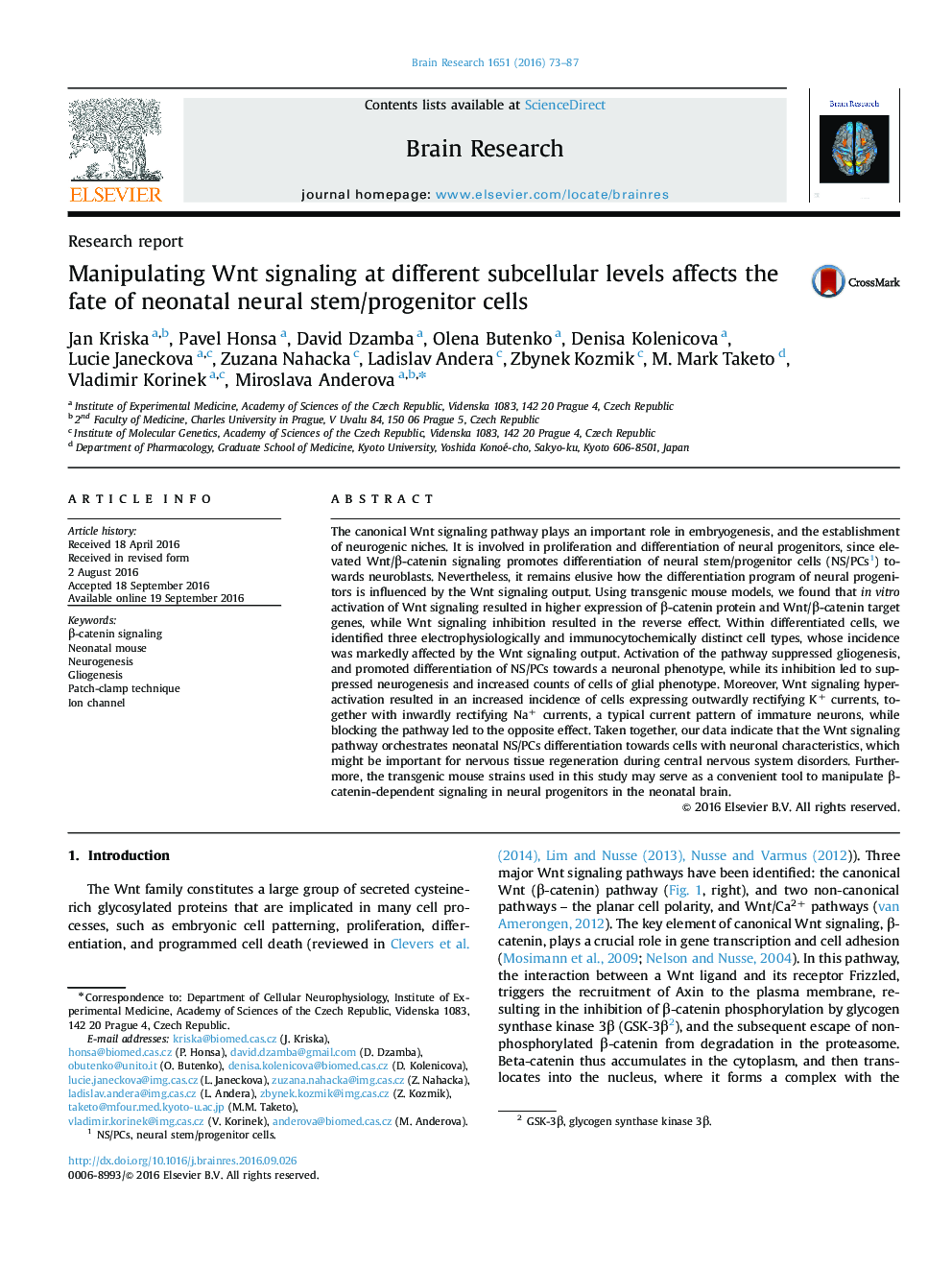| Article ID | Journal | Published Year | Pages | File Type |
|---|---|---|---|---|
| 6262233 | Brain Research | 2016 | 15 Pages |
â¢Three mouse models suitable for Wnt signaling manipulation in the neonatal brain.â¢Wnt signaling influences the incidence of distinct cell types in in vitro cultures.â¢Wnt signaling affects the electrophysiology of differentiated neural progenitors.â¢Wnt/β-catenin signaling promotes neurogenesis at the expense of gliogenesis.
The canonical Wnt signaling pathway plays an important role in embryogenesis, and the establishment of neurogenic niches. It is involved in proliferation and differentiation of neural progenitors, since elevated Wnt/β-catenin signaling promotes differentiation of neural stem/progenitor cells (NS/PCs1) towards neuroblasts. Nevertheless, it remains elusive how the differentiation program of neural progenitors is influenced by the Wnt signaling output. Using transgenic mouse models, we found that in vitro activation of Wnt signaling resulted in higher expression of β-catenin protein and Wnt/β-catenin target genes, while Wnt signaling inhibition resulted in the reverse effect. Within differentiated cells, we identified three electrophysiologically and immunocytochemically distinct cell types, whose incidence was markedly affected by the Wnt signaling output. Activation of the pathway suppressed gliogenesis, and promoted differentiation of NS/PCs towards a neuronal phenotype, while its inhibition led to suppressed neurogenesis and increased counts of cells of glial phenotype. Moreover, Wnt signaling hyperactivation resulted in an increased incidence of cells expressing outwardly rectifying K+ currents, together with inwardly rectifying Na+ currents, a typical current pattern of immature neurons, while blocking the pathway led to the opposite effect. Taken together, our data indicate that the Wnt signaling pathway orchestrates neonatal NS/PCs differentiation towards cells with neuronal characteristics, which might be important for nervous tissue regeneration during central nervous system disorders. Furthermore, the transgenic mouse strains used in this study may serve as a convenient tool to manipulate β-catenin-dependent signaling in neural progenitors in the neonatal brain.
Graphical abstractDownload high-res image (225KB)Download full-size image
